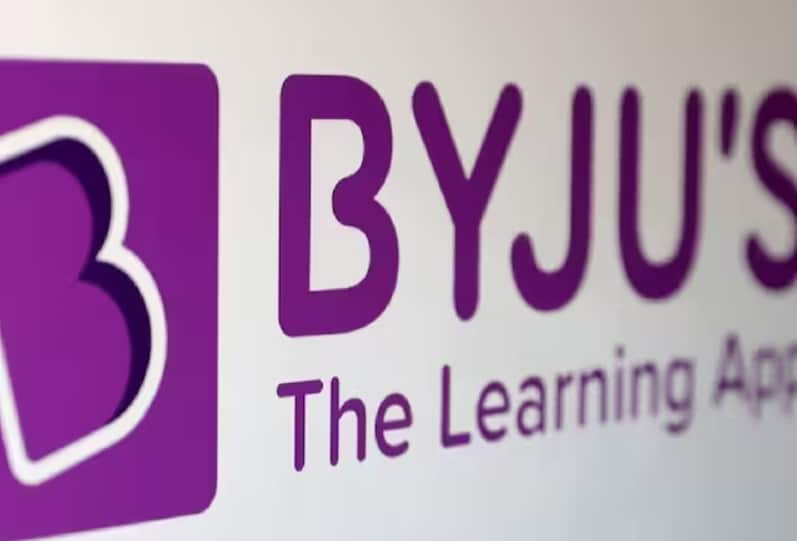Advertising
From Pink Slips to Silent Sidelining: Inside adland’s layoff and anxiety crisis

Byju Raveendran, the embattled founder of Indian ed-tech major Byju’s, has said he will appeal a U.S. bankruptcy court order directing him to pay more than $1.07 billion, denying wrongdoing, accusing lenders of misleading the court and insisting that the ruling represents an extraordinary turn in a dramatic fall from grace for a onetime star of India’s startup ecosystem.
As per a report by TechCrunch, the Delaware bankruptcy court issued a default judgment after finding that Raveendran repeatedly ignored court directions and provided what it described as evasive and incomplete responses concerning around $533 million that Byju’s U.S. arm is alleged to have transferred in 2022 and never recovered. The judge also raised concerns about a separate limited-partnership stake later valued at roughly $540.6 million. The order, dated 20 November, stems from action brought by lenders attempting to claw back funds tied to the $1.2 billion term loan extended to the company in 2021.
In April this year, a consortium of U.S. lenders led by GLAS Trust filed a lawsuit in the Delaware bankruptcy court against Raveendran and his wife, co-founder Divya Gokulnath, over the missing $533 million. The couple denied wrongdoing at the time and alleged that lenders were attempting a hostile takeover of the company. They later said they intended to pursue a $2.5 billion suit against GLAS Trust and others in India and additional jurisdictions, although no such case has surfaced publicly. This was in addition to Byju’s complaint in the New York Supreme Court challenging the acceleration of the term loan in 2023, reported TechCrunch.
The latest ruling follows a hearing on 29 September on the default request, during which the judge pointed to a months-long pattern of non-compliance, stating that Raveendran had failed to appear for hearings, missed extended deadlines and ignored a previous contempt order that imposed daily sanctions of $10,000, which remain unpaid.
U.S. Bankruptcy Judge Brendan Shannon said the relief granted was extraordinary, noting that the circumstances were unique and unlike anything he had encountered before, making such measures warranted. The parties have been given seven days to respond to the order.
J. Michael McNutt, senior litigation advisor at Lazareff Le Bars and representing Raveendran, informed TechCrunch that they believe the U.S. court erred in its judgment and will be filing appeals and other challenges, adding that relevant facts were ignored. Raveendran’s legal representatives argued that the judgment was issued without giving him an opportunity to present a defence and relied instead on a prior contempt order. They further stated that GLAS Trust was aware that the Alpha loan funds were not used for the personal benefit of Raveendran or other founders but were instead deployed for Think & Learn, the parent company. The counsel added that Byju’s founders are preparing claims against GLAS Trust and others in multiple jurisdictions, expected to seek at least $2.5 billion in damages and likely to be filed before the end of 2025 unless a settlement is reached.
The default judgment underscores the rapid decline of Byju’s and its founder, once valued at $22 billion and backed by global names such as Tiger Global, Prosus and the Chan Zuckerberg Initiative. The company is now grappling with litigation across countries, severe funding pressures, mass layoffs and a struggle for control as lenders attempt to recover their dues.
Raveendran had previously challenged the Delaware court’s jurisdiction, but the argument was rejected, with the judge ruling that the conduct in question related to his activities in U.S. fundraising and his role as a director, officer or manager of a U.S. corporation.
Earlier this week, a filing in the Delaware bankruptcy case alleged that most of the missing $533 million from Alpha had been round-tripped back to Raveendran and associates, an allegation he denied, stating that the funds were not used for personal gain.
In India, Byju’s is undergoing a court-supervised sale process following insolvency proceedings initiated last year, with early bidders including Manipal Education and Medical Group and UpGrad, owned by Ronnie Screwvala.
From purpose-driven work and narrative-rich brand films to AI-enabled ideas and creator-led collaborations, the awards reflect the full spectrum of modern creativity.
Read MoreLooking ahead to the close of 2025 and into 2026, Sorrell sees technology platforms as the clear winners. He described them as “nation states in their own right”, with market capitalisations that exceed the GDPs of many countries.